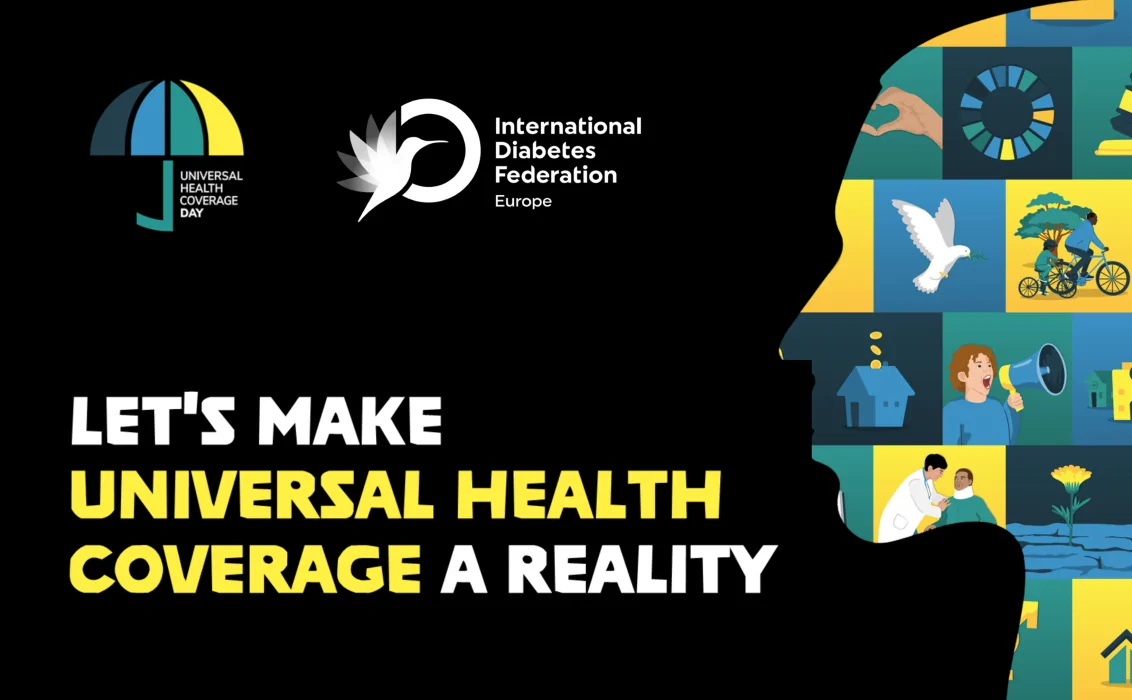I am proud of my son, for who he was, who he is and who is becoming.
With 60 million people with diabetes and 32 million more at risk of developing it, Europe is facing a major health and financial pandemic. Today, it is estimated that 1 in 9 women over 25 have diabetes in the continent, and 1 in 7 births is affected by gestational diabetes, leading within 10 years after pregnancy to type 2 diabetes in 50% of all cases. In addition to their direct relations with diabetes, women are key agents in the adoption of healthy lifestyles which are crucial to prevent type 2 diabetes and also to maintain appropriate blood glucose levels and decrease the risk of debilitating complications. Furthermore, mothers will also often be the ones looking after the therapeutic and psychological aspects of a child with type 1 diabetes.
On the occasion of World Diabetes Day, IDF Europe decided to run a series of interviews of women having a direct relation with diabetes. Whether they have diabetes, have someone in their family living with the condition or they advocate at international level, they all have one thing in common: diabetes is at the centre of their daily life and they are all committed fight for stronger rights and lesser discrimination.
Today, we spoke to Dr Niti Pall IDF Europe Regional Chair-Elect, a General Practionner in the United Kingdom and medical director for KPMG global healthcare practice. She is the mother of Jaivir, 26 years, who has been living with diabetes for the last 23 years.
When was the diabetes of Javir discovered? What was his first reaction and your?
Jaivir was diagnosed 23 years ago, he was 3 back then. He was still a baby and I am not sure he understood everything what was going on but as a mother, and a medical doctor, I have to say I was extremely proud of him and his reaction. He took it in his stride, adapted and enjoyed life. The more he grew up the more I realised that is reaction was also link to his character: my son is a fighter who is not afraid to confront difficulties in life. Is it something he learned thanks to diabetes? Not sure, but wherever it is coming from, it is definitively in him.
On our side, it was another story. I was devastated and having a medical background does not always help in those situations. But together we did what everybody else in our situation would do: we learnt, we adapted and we tried to look as much as possible on the bright side. And today, I am still extremely proud of my son, for who he was, who he is and who is becoming.
But we have to face it: we were lucky that Jaivir was diagnosed and could have easy and free access to medicines and education. With free prescriptions, no co-payments or fees to be paid it allowed for a much better treatment, and I cannot praise the system enough thank you NHS ! You know, in many countries, most kids with diabetes still die because they are not diagnosed or misdiagnosed and even if they are they do not have access to adequate treatment because insulin and furniture’s are not available or too expensive. This is still the case on some countries in Europe and one of the greatest fight of our organisation.
You just mentionned the role of education. Did you receive a specific training on diabetes self-management following the discovery of the diabetes?
Being a chronic disease, diabetes education is an important part of the therapy and must be adapted to the audience. My son was 3, I was devastated, I guess not the easiest call for educators We received incredible support from the diabetes home care team at the children’s hospital in Birmingham. First of all, rather than admitting him, they stabilised Jaivir at home, and this was extremely helpful. For a 3 years old baby, being in a familiar environment, surrounded by his family and toys rather than in an hospital room is incomparable. Then they provided us with great and adapted advices to be able to self-managed Jaivir’s diabetes on a daily basis.
We also got super helpful support from diabetes UK and we became lifelong members. Putting on my hat of a former board member of Diabetes UK here, the role of patient organisation is really important and I encourage everybody living with diabetes to join their local or national association. As a mother of a child with diabetes, I was lost sometimes and did not what to do. Meeting with families facing the same issues, having the same questions is a great support. I learned so much for the others and received so much support when I felt down. For example, within Diabetes UK, we had a support group named the Tadpole club which aimed to provide help and support to very young children living with diabetes as well as their families, friends and carers. It provided participants with a safe, social forum to discuss diabetes and its effects. It is a great way of learning, socialising and advocating for diabetes.
You spoke about adaptation to the rhythm of a chronic disease. As a mother, what has been the impact of diabetes on the daily management of your family?
The secret is organisation and we have had to be very organised about our lives. The first few years were hard when Jaivir was on a fixed twice a day mix of insulin. Once more, the diabetes team at the hospital and the Diabetes UK ‘s one were extremely supportive and help us manage sports and exercise and school trips. We also became members of the parent’s association of the school which allowed us to know well the teachers and inform them about diabetes and diabetes management in that setting.
The upshot was we drew closer together as a family and got interested in advocacy for diabetes. As mentioned before, Jaivir is not afraid to confront difficulties and he has been incredibly good at managing his diabetes which eased the impact of the condition on our family.
What will be your advices to healthcare professionals (HCP) to improve the integration of diabetes in a family?
Diabetes is a lifelong condition and the way it is handled at the start by healthcare professional is crucial. I am a strong defender of the position of patients at the core of the health system. In our personal case, we have been extremely lucky to encounter the team of the children’s hospital in Birmingham which is still for me an example of what should be done. For example, kids should be treated as much as possible in their home to provide them with a familiar environment during these unknown first moments.
The chronicity of the disease also means that, often, persons with diabetes have a great understanding of his/her condition. Their voice must be heard and taken into consideration by governments and HCPs even at the youngest age. For example, Jaivir helped a new design of the clinic visit when he was 8.
Education must be tailored fit and culturally sensitive. It may sound logical, but we are all different, with different needs and background and what work for one family may not work for another one. If education is not adapted, the message may not go through and diabetes will not be treated and managed the way it could optimality be.



